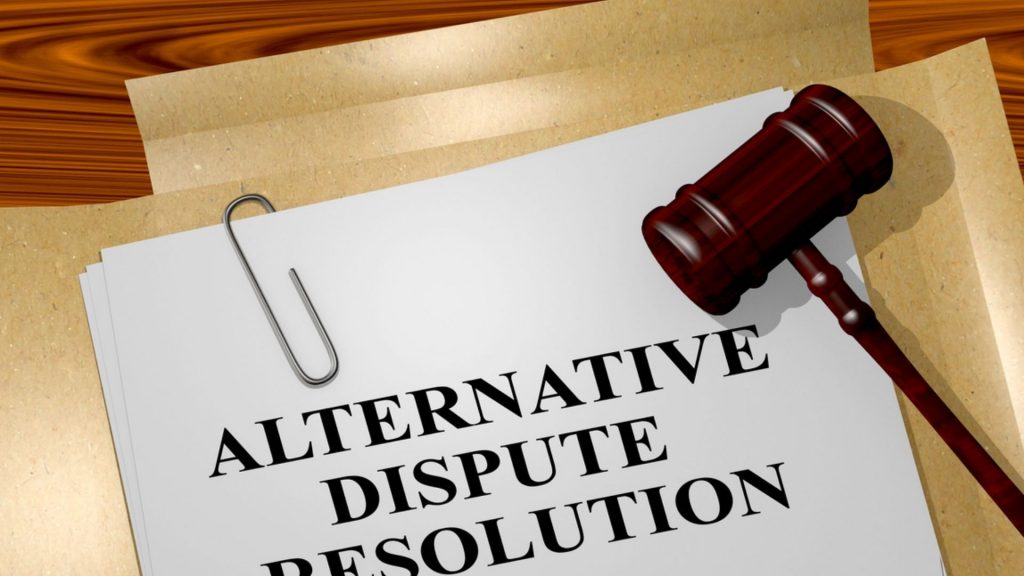As you explore resolving disputes, consider the streamlined avenues offered by Alternative Dispute Resolution (ADR). By opting for methods like mediation or arbitration, you’re not just choosing a private and cost-effective path; you’re actively steering the outcome of your case. This control can be essential, especially in sensitive areas such as family law where maintaining relationships post-resolution is often as important as the agreement itself. But, how do you determine when ADR is the right choice for your situation? Thats where https://www.simplicitylegal.co.uk/ can help.
Understanding the Different Types of Alternative Dispute Resolution
Understanding the different types of Alternative Dispute Resolution (ADR) is essential as each method offers unique advantages and suits different situations.
Negotiation allows you and your partner to discuss directly, aiming to reach an agreement without intermediaries.
Mediation brings in a neutral third party to help facilitate your discussions, ensuring both sides are heard.
Collaboration involves each of you working with your own lawyers, yet all parties commit to resolving issues together, without court intervention.
Each type of ADR can be tailored to your specific circumstances, making it vital to choose the one that best fits your situation.
Benefits of Choosing ADR for Family Law Disputes
Now that you’re familiar with the different types of Alternative Dispute Resolution, let’s explore why opting for ADR in family law disputes can be particularly beneficial.
You’ll find that ADR offers a more private setting, reducing the emotional strain often experienced during public court proceedings. It’s generally faster and less costly than traditional litigation, allowing you to save both time and money.
Furthermore, ADR encourages cooperation, helping maintain amicable relationships—a vital aspect when children are involved.
Importantly, you’ll have more control over the outcome, creating agreements that better suit your family’s specific needs.
When to Avoid Using Alternative Dispute Resolution
While Alternative Dispute Resolution (ADR) offers many benefits, there are circumstances where it may not be the best approach.
If you’re dealing with a history of abuse or violence, court intervention provides necessary protections that ADR can’t guarantee.
Similarly, if there’s a significant power imbalance, you might find it impossible to negotiate fairly.
Urgent legal issues, like needing immediate restraining orders, also require traditional court action.
Additionally, ADR relies on both parties’ willingness to participate. If the other party isn’t open to discussing or compromising, you’ll find ADR frustrating and unproductive.
In such cases, pursuing litigation might be inevitable.
The Cost and Duration of ADR Processes
Considering the impact on your finances and time, it’s crucial to understand the cost and duration of Alternative Dispute Resolution (ADR) processes.
Typically, ADR is less expensive than court battles. Fixed-cost services mean you’ll know what you’re paying upfront, avoiding surprises.
Duration-wise, ADR can be quicker, depending on how well you and the other party cooperate. Processes like mediation might wrap up in a few sessions, while collaboration could take longer if issues are complex.
How to Prepare for an Alternative Dispute Resolution Session
To effectively prepare for an Alternative Dispute Resolution (ADR) session, you should first gather all relevant documents and information related to your dispute.
Here are a few more steps to guarantee you’re ready:
- Identify Your Objectives: Clarify what you hope to achieve from the ADR process. Understanding your goals helps you negotiate more effectively.
- Consult with Your Attorney: Confirm you have legal advice tailored to your situation. This guidance is vital in formulating your strategy.
- Prepare Emotionally: ADR can be stressful. Practicing calm and composed responses can greatly influence the outcome positively.
Conclusion
As you consider your options for resolving family disputes, remember that ADR offers a private, cost-effective way to maintain control and nurture amicable relationships. However, it’s essential to recognize situations where ADR might not be suitable, such as in cases of abuse or severe power imbalances. Preparing effectively and understanding the costs and duration can further empower you to make informed decisions. Choose wisely to guarantee the best possible outcome for all involved.

